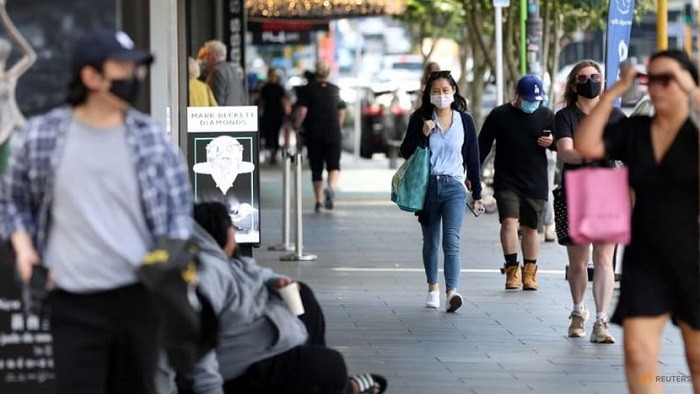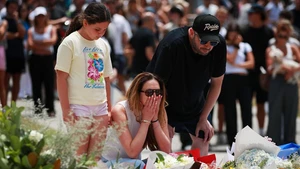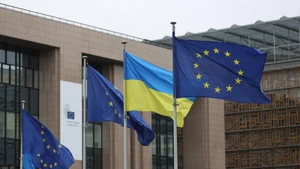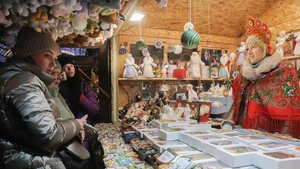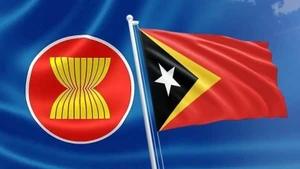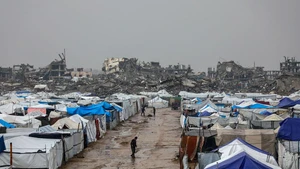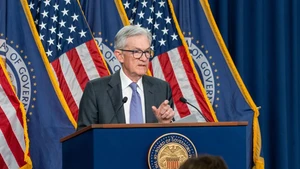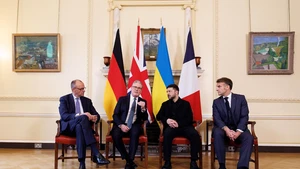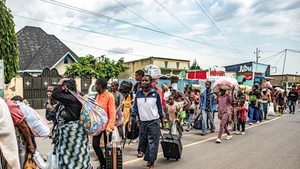* Chinese foreign ministry spokesperson Wang Wenbin said on Monday that all sides should remain calm and avoid further escalation, after Russian President Vladimir Putin put his country's nuclear deterrent on high alert.
* Arab League (AL) Secretary-General Ahmed Aboul-Gheit on Monday called for restoring dialogue and seeking to settle the Russian-Ukrainian conflict via diplomatic ways to avoid escalations and expanding the area of tensions, the AL said in a statement.
* Iran said on Monday efforts to revive a 2015 nuclear deal could succeed if the United States took a political decision to meet Tehran's demands, as months of negotiations enter what one Iranian diplomat called a "now or never" stage.
* Crude oil jumped while the rouble plunged nearly 30% to a fresh record low after new sanctions were imposed, including blocking some banks from the SWIFT international payments system.
* Italy's foreign minister is visiting Algeria with the head of energy group Eni ENI.MI to discuss energy cooperation in light of the Ukraine crisis, the ministry said on Monday.
* The United Arab Emirates, the Middle East tourism and commercial hub, over the weekend ended a requirement to wear face masks outdoors and obligatory quarantine for COVID-19 contact cases.
* Thailand's economy improved in February after a moderate slowdown the previous month, owing to an easing of curbs and a resumption of a quarantine waiver for foreign tourists, the central bank said.
* Asian refining margins for 10 ppm gasoil slipped as raw material crude prices kept surging, while traders were concerned higher pump prices might weigh on near-term demand even as COVID-19 restrictions ease further.
* Turkey's economy bounced back from the pandemic to grow 11% last year, its highest rate in a decade, but economists see a sharp slowdown this year as inflation surges following the lira's crash and with the Ukraine crisis set to hit tourism.
* Italy will receive a first payment of 21 billion euros (23.53 billion USD) from the "Next Generation EU" fund to help states compensate the impact of the pandemic, EU Commission head Ursula von der Leyen said.
* OPEC Secretary General Mohammad Barkindo said on Monday it would be a tragedy if Africa's oil and gas resources became stranded assets because of the global drive towards decarbonisation, and that any talk of halting investments in the field was misguided.
* The lowest offer in the international tender from Egypt's state commodities buyer GASC to buy wheat on Monday was believed to be 389.92 USD a tonne FOB for wheat sourced from France, traders said in initial assessments.
* The Republic of Korea will temporarily lift a requirement for vaccine passes or negative COVID-19 tests at a number of businesses to ease the strain on testing centres as the country faces a wave of Omicron infections.
* Australian retail sales were surprisingly strong in January as shoppers weathered a surge in Omicron cases with aplomb, suggesting the economy maintained considerable momentum into the new year.
